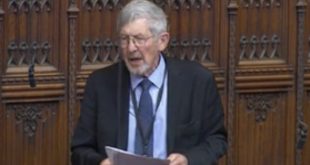The UK Gambling Commission (UKGC) has achieved a principal objective, publishing the first datasets of the Gambling Survey of Great Britain (GSGB).
Following consultations undertaken between 2020 and 2021, the Commission launched the GSGB project to change how data is collected on “adult gambling participation and problem gambling prevalence statistics.“
Today, wave one of the GSGB datasets was released, centered on gambling participation, focusing on gambling activities that adults participate in and their reasons for gambling. The Commission stands by the methodology of research and data collection, to improve the tracking of gambling trends over time on the public, offering frequent and consistent data collection among adults in Great Britain.
As detailed by Research Director Ben Haden: “The GSGB provides a consistent and frequent way of collecting data among adults in Great Britain and will provide regular data outputs to help us understand changes in gambling behavior among the population and among subpopulation groups.”
The survey’s first datasets were collected between July and November 2023 from approximately 4,800 respondents aged 18 and over. Wave one datasets reveal that 48% of adults gambled in the last four weeks. When excluding those who only participated in lottery draws, this figure stands at 27%.
The survey details that gambling participation is highest for males aged 45 to 54, with a participation rate of 52%. However, removing lottery-only draw players shifts the age profile downwards, resulting in males aged 18-44 having the highest gambling participation rates, at an average of 41% (excluding lottery participation).
Overall, the online gambling participation rate for UK adults over the last four weeks is 38%. However, data reveals that participation drops to 16% when stripping out the lottery segment. Excluding lottery, online gambling carries the highest prevalence among males aged 25-34 (31%), while the age range of 18-24 shows an online gambling participation rate of 26%.
For retail (in-person) gambling, the participation rate in the last four weeks was 29%. When excluding those who only participated in lottery draws, the rate stands at 18%.
Moving forward, the Gambling Commission will release GSGB data on a quarterly basis of around 5,000 responses each time, and an annual report will combine yearly data for a comprehensive overview, including the impact of gambling on individuals.
All GSGB data and technical information will be available on the Commission’s Statistics and Research hub, with raw data shared annually in the UK Data Archive to support evidence-based improvements in gambling research.
The Commission thanked all stakeholders involved in conducting new research, as Haden explained: “Today we have launched the first wave of data from the new Gambling Survey for Great Britain (GSGB). After several years in development, we are delighted we have reached this point as we strive for better evidence to inform better decisions which will lead to better regulation.”
“It has been a significant investment for the Gambling Commission — money, people, and time — and I would like to thank the team who have put so much into it over this considerable time to bring it to this point.”









